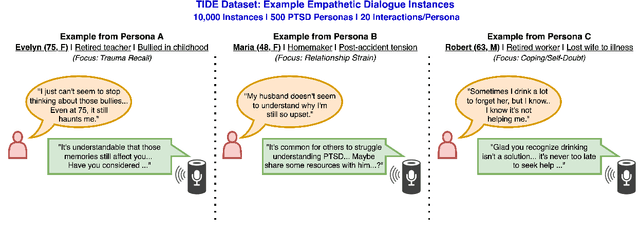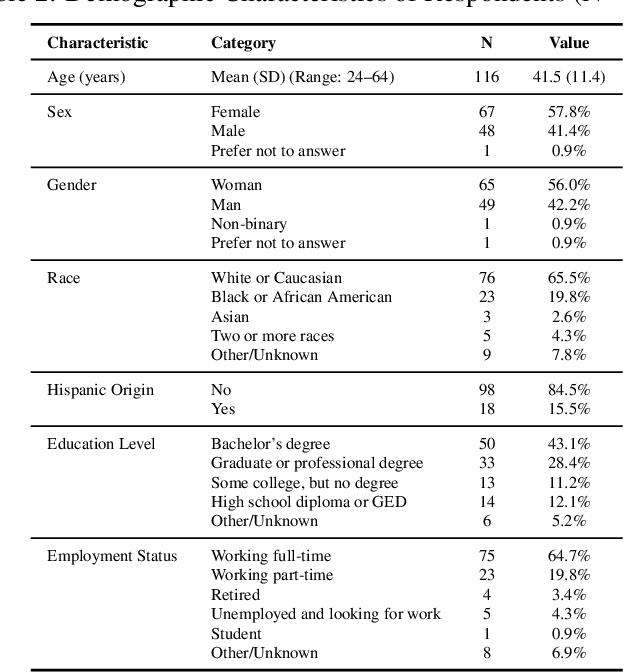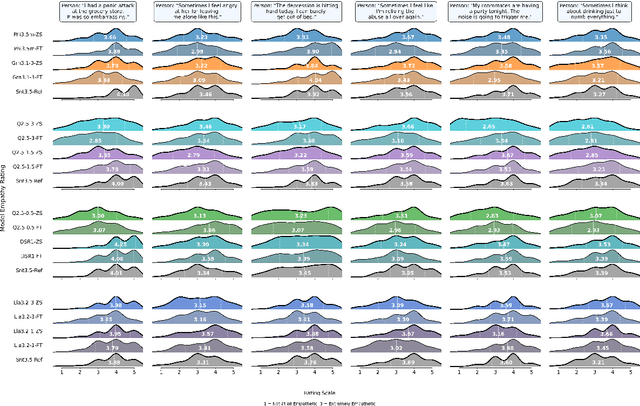The Pursuit of Empathy: Evaluating Small Language Models for PTSD Dialogue Support
Paper and Code
May 21, 2025



Can small language models with 0.5B to 5B parameters meaningfully engage in trauma-informed, empathetic dialogue for individuals with PTSD? We address this question by introducing TIDE, a dataset of 10,000 two-turn dialogues spanning 500 diverse PTSD client personas and grounded in a three-factor empathy model: emotion recognition, distress normalization, and supportive reflection. All scenarios and reference responses were reviewed for realism and trauma sensitivity by a clinical psychologist specializing in PTSD. We evaluate eight small language models before and after fine-tuning, comparing their outputs to a frontier model (Claude Sonnet 3.5). Our IRB-approved human evaluation and automatic metrics show that fine-tuning generally improves perceived empathy, but gains are highly scenario- and user-dependent, with smaller models facing an empathy ceiling. Demographic analysis shows older adults value distress validation and graduate-educated users prefer nuanced replies, while gender effects are minimal. We highlight the limitations of automatic metrics and the need for context- and user-aware system design. Our findings, along with the planned release of TIDE, provide a foundation for building safe, resource-efficient, and ethically sound empathetic AI to supplement, not replace, clinical mental health care.
 Add to Chrome
Add to Chrome Add to Firefox
Add to Firefox Add to Edge
Add to Edge